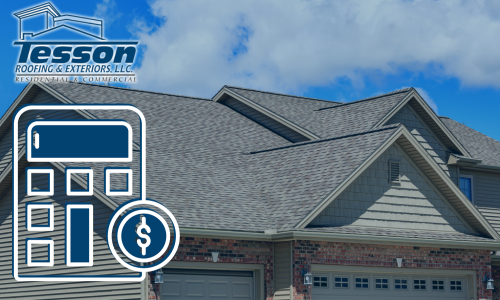Roof repair and replacement costs can vary widely based on several factors. Understanding these elements is essential for accurate budgeting and making informed decisions about your roofing project. In this article, we’ll explore the key factors that influence the cost of roof repair and replacement and provide guidance on how to calculate these expenses.
Factors Affecting Roof Repair and Replacement Costs:
1. Roofing Material: The type of roofing material you choose significantly impacts the cost. Asphalt shingles are generally more affordable, while materials like metal, slate, or clay tiles tend to be more expensive due to their durability and aesthetics.
2. Roof Size and Complexity: Larger roofs naturally require more materials and labor, increasing the overall cost. Complex roof designs, multiple angles, and intricate features like skylights or chimneys can also raise the installation complexity and, consequently, the cost.
3. Scope of Damage or Replacement: The extent of repairs or replacement needed influences costs. Minor repairs will be less expensive than extensive structural repairs or a full roof replacement.
4. Labor Costs: Labor costs vary based on the location, the experience of the roofing contractor, and the complexity of the project. Skilled labor and reputable roofing companies may charge higher rates, but their expertise often ensures a better-quality job.
5. Roof Accessibility: Difficult-to-access roofs, especially those in urban areas or with limited space around the property, can increase labor costs. Safety measures and equipment might be necessary, adding to the overall expense.
6. Additional Features: Roof features such as skylights, chimneys, vents, or gutter systems can add to the cost. Their installation, repair, or replacement requires specific expertise and materials.
7. Permits and Regulations: Local building permits and regulations can impact costs. Some areas have specific requirements or restrictions, and obtaining permits might involve additional fees.
How to Calculate Roof Costs:
- Determine Roof Size: Measure your roof’s length and width to calculate the square footage. Most roofing materials are priced per square (100 square feet). Divide the total square footage by 100 to get the number of squares.
- Estimate Material Costs: Research the cost per square for the chosen roofing material. Multiply the number of squares by the material cost per square to get the total material cost.
- Factor in Labor Costs: Obtain quotes from reputable roofing contractors. Labor costs can vary, so get multiple quotes to find a competitive rate. Factor in labor costs based on the estimated time for the project.
- Include Additional Costs: Consider costs for permits, disposal of old roofing materials, and any additional features or repairs. Add these to your total.
- Account for Contingencies: It’s wise to set aside a contingency budget (around 10-20% of the total) for unexpected expenses or minor changes in the project scope.
- Calculate Total Roof Cost: Add up the material costs, labor costs, additional expenses, and contingency budget. The sum gives you the estimated total cost of your roof repair or replacement project.
Understanding these influencing factors and carefully calculating costs will empower you to make informed decisions about your roof repair or replacement project. It ensures that you have a realistic budget and helps you choose the right roofing solution for your needs and budget constraints.
